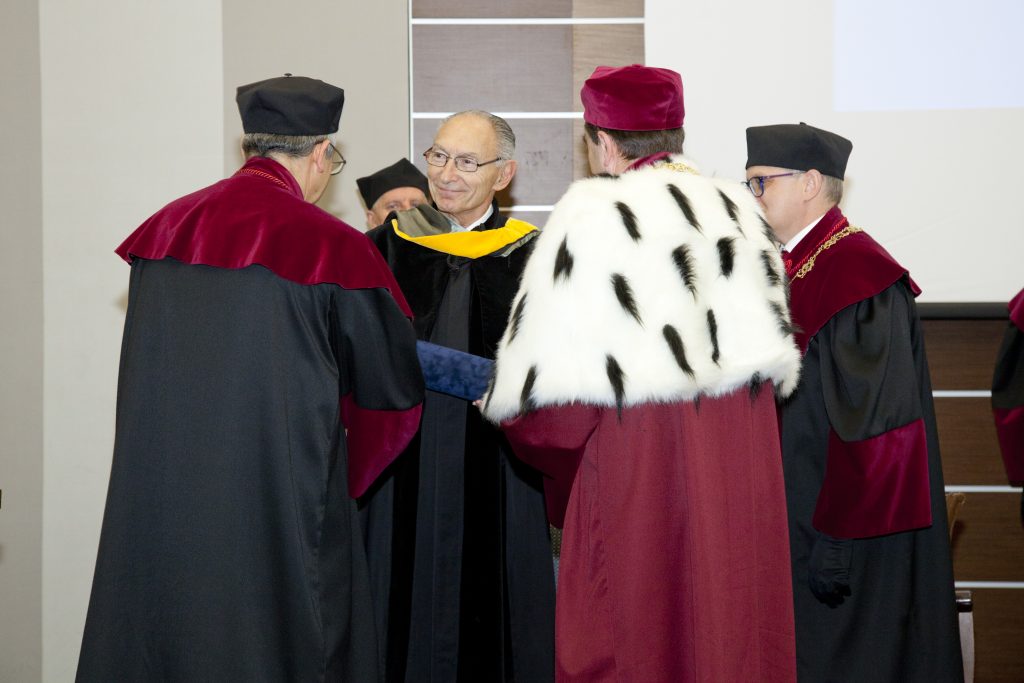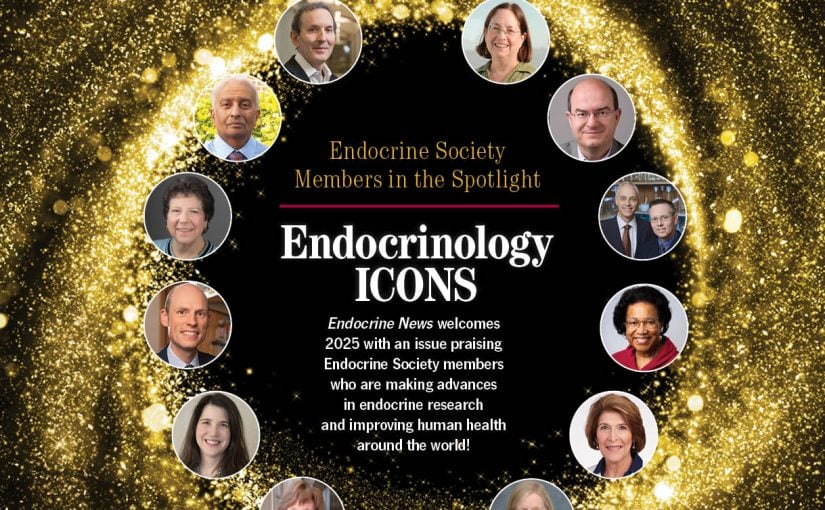
In June, Endocrine Society past-president Leonard Wartofsky, MD, MACP, professor of medicine at Georgetown University and editor-in-chief of Endocrine Reviews, was awarded doctorate honoris causa from both the University of Poznan in Poland and the University of Athens in Greece.
“I think it’s a tremendous honor,” Wartofsky says. “It’s not something you really expect in life or the kind of career I’ve had. You know I’ve won several honors from the Endocrine Society and the American Thyroid Association and the American College of Physicians. And those are from your peers in recognition of what you may have done. But these are from colleagues at universities in obviously remote places, i.e., Poland and Greece. To recognize what one has achieved in your career and be given what may be one of the highest honors from their school is very, very touching.”
Wartofsky has been active in both universities’ scientific communities. When he was president of the Society, Wartofsky wanted to increase international involvement in committees since that constituency of the membership was growing rapidly. “I reached out to the scientists in Poland and put some of them on different committees,” he says. “I got them deservedly involved on the Editorial Board when I was editor-in-chief of JCEM, and they were very appreciative of that, and that led to my increased interaction with their community.”
That increased interaction paid off. The University of Poznan recognized Wartofsky with its highest honor, and when the University of Athens got word, they decided to recognize Wartofsky as well, since he had made similar visits to the Athens university, giving talks and meeting with faculty. The two universities collaborated with each other and they were able to coordinate two ceremonies in a week so Wartofsky and his wife could attend both in one trip.
For his laureate lecture at the University of Poznan, Wartofsky spoke about Polish Nobel Prize winners. He says that he had given one of the Society’s Sawin history lectures about Nobel Prize winners in endocrinology and noted that a number of Nobel Prize winners were Polish. The University of Poznan had asked Wartofsky to give a lecture that would be of general interest to the audience. “It occurred to me that it would be of interest to them to hear about Polish Nobel Prize winners,” he says. “And in researching that, there were some 17 or 18, some in medicine and physiology, one or two in economics, and a couple of Peace Prizes as well. It was a very interesting mix of individuals and that was the basis for my lecture there and it seemed to go over very well.”
At the University of Athens, Wartofsky spoke about the future of graduate education. “Education would be changing in the future,” he says. “In fact, it already is changing. One of the medical schools just announced last week they were doing away with lectures. I spoke about that and how the focus would really be more on teaching problem solving and working in small groups, and how online education and access to information was changing how college students would be working. So it was more speculative, but I pointed out how based on current trends, the process of education would be different in many ways in the future.”
Wartofsky’s hosts in Poland and Greece, respectively, were Marek Ruchala and George Mastorakos, both members of the Endocrine Society.
Wartofsky served as president of the Endocrine Society from 2006 to 2007 and editor of The Journal of Clinical Endocrinology & Metabolism (JCEM) from 2010 to 2015.

